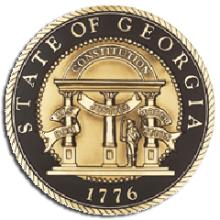Fast, affordable Internet access for all.
Windstream
Content tagged with "Windstream"
Georgia Bill Aims to Limit Investment In Internet Networks
Georgia Bill Aims to Limit Investment In Internet Networks
Georgia Bill Aims to Limit Investment In Internet Networks
Georgia Bill Aims to Limit Investment In Internet Networks
Georgia Bill Aims to Limit Investment In Internet Networks
Georgia Bill Aims to Limit Investment In Internet Networks
Georgia Bill Aims to Limit Investment In Internet Networks
Georgia Bill Aims to Limit Investment In Internet Networks
More Evidence for Looming Broadband Monopoly
DSLReports has accurately noted the continued decline of competition between DSL and cable providers. Heck, it seems like no large company wants to invest in the future of broadband in this country. Verizon and AT&T have chosen to focus on wireless technology, resulting in less true competition. Cable (or FTTH if you are lucky to have that option) tends to offer faster, more expensive connections and DSL is the slower, less expensive option for many.
As we noted in an earlier post, Verizon no longer offers stand alone DSL and is voluntarily losing customers to focus on their more profitable (and more expensive) fixed LTE service. Many of the companies providing DSL service simply lack the interest or capacity to invest in modern networks.
Windstream lost broadband subscribers last quarter for the first time ever losing 2,200 subscribers for a 1.36 million total. Verizon added just 2,000 net broadband users last quarter, the worst quarterly result in four years. The AP quotes Verizon as saying that the hit was due to Verizon's decision to stop selling standalone DSL.
...
Meanwhile, smaller telcos like Windstream, Frontier, Fairpoint and CenturyLink find themselves unable or unwilling to upgrade their networks to keep pace with faster cable speeds. That's going to result in considerably more bloodshed for the telcos as additional subscribers jump ship (assuming they have the choice), resulting in cable's domination of the U.S. residential broadband market.
Continued reliance on these companies to build the essential infrastructure our economy and citizens need is foolish. The incentives are all wrong for their model and the amount of public money it will take to bribe them into building better infrastructure would offer far higher returns when invested in models that are democratically accountable to the community -- networks owned by local governments, cooperatives, or other nonprofit organizations.



